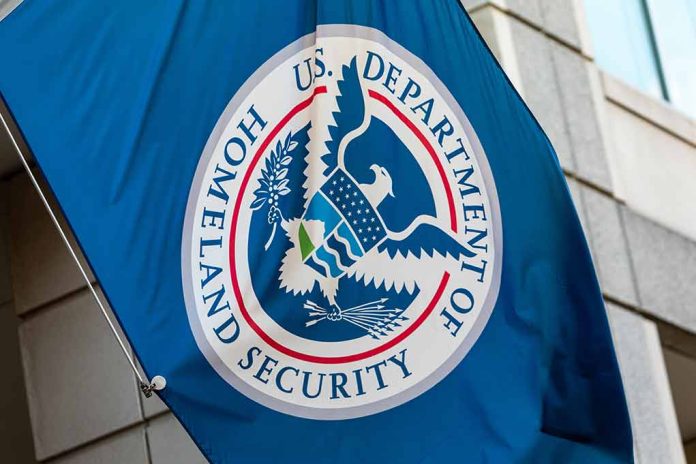
The Department of Homeland Security challenges media portrayals of the Tren de Aragua gang, shedding light on the broader implications for U.S. immigration policy.
Key Takeaways
- DHS critiques media empathy towards the Tren de Aragua gang’s activities in the U.S.
- Reports emphasize child safety amidst gang-related criminal activity.
- The department refutes Venezuelan claims of child separation for propaganda purposes.
- DHS stresses the security risks posed by illegal immigration involving gang members.
- The administration criticizes the previous government’s immigration policy decisions.
DHS Challenges Media Narratives
The Department of Homeland Security has expressed discontent with certain media portrayals of the Tren de Aragua gang. Criticism is aimed at reports perceived to overly sympathize with the gang, thus potentially diverting attention from the group’s violent nature. Reuters was specifically highlighted for its coverage of suspected gang members creating an “S-O-S” sign at a Texas detention facility. The DHS urges a shift in media narratives towards assessing the potential security threats posed by such individuals.
The Trump administration’s DHS refutes claims made by the Venezuelan government accusing the U.S. of unjust child separations in response to the gang’s criminal activities. Clarifications were provided regarding a child’s removal from her parents, who possess links to serious crimes like homicides and sex trafficking. The DHS emphasizes preventive measures taken to ensure child safety amid potentially harmful environments such as recruitment for drug smuggling and prostitution.
Immigration Policy Implications
The DHS reproaches previous administrations for the alleged release of criminal gang members, advocating instead for the “catch and release” policy’s cessation. Under the current administration, significant strides have been made to protect children and crack down on illegal immigration tied to such gangs. The department highlighted accomplishments including reunifying over 5,000 children with family or safe guardians. This stance underscores the gravity of immigration challenges facing the country.
The DHS further accentuates the necessity for immigration systems prioritizing national security. Critics within the department address previous instances where criminal gangs were allowed entry into American communities. The DHS appeals for increased vigilance against credible threats posed by international organizations like Tren de Aragua, which has been declared a foreign terrorist organization, suggesting this approach is vital to safeguarding communities across the nation.
Impact on Community Safety
The DHS underscores its commitment to preventing the infiltration of violent gangs into American societies, ensuring that such communities remain secure. Experts within and outside the department note that foreign criminal networks carry significant risks, potentially exacerbating threats to law and order domestically. The department’s objective is straightforward: ending the release of gang members into the community and preventing any further influence on public safety.
“Tren De Aragua is one of the most violent and ruthless terrorist gangs on planet earth, they rape, maim, and murder for sport,” noted Assistant Secretary Tricia McLaughlin.
Critics have accused the media of focusing excessively on the stories of gang members rather than the American families affected by their actions. In light of DHS findings, calls for adjusted media narratives become paramount, emphasizing victims’ hardships over sympathetically-told accounts of alleged criminal figures. The department maintains that prevention and protection remain at the forefront of its mission, underscoring the importance of accurate representation in moving forward.





